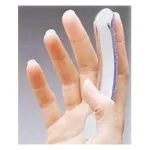Do be patient when you're sending private chats to one another. Most brothers don't use the chat function. They prefer to post inside the general forum instead:
https://mattersofsize.com/forums/penis-enlargement-forum.19/
Come and join us there.
https://mattersofsize.com/forums/penis-enlargement-forum.19/
Come and join us there.
- No one is chatting at the moment.
-
 MoS Notifier:
Whatever2000 is our newest member. Welcome!
MoS Notifier:
Whatever2000 is our newest member. Welcome! -
 MoS Notifier:
Hiaslayer is our newest member. Welcome!
MoS Notifier:
Hiaslayer is our newest member. Welcome! -
 MoS Notifier:
1kadenz is our newest member. Welcome!
MoS Notifier:
1kadenz is our newest member. Welcome! -
 MoS Notifier:
hanxpalz is our newest member. Welcome!
MoS Notifier:
hanxpalz is our newest member. Welcome! -
 MoS Notifier:
katiedahz is our newest member. Welcome!
MoS Notifier:
katiedahz is our newest member. Welcome! -
 MoS Notifier:
beinngerjelqer is our newest member. Welcome!
MoS Notifier:
beinngerjelqer is our newest member. Welcome! -
 MoS Notifier:
makugats is our newest member. Welcome!
MoS Notifier:
makugats is our newest member. Welcome! -
 MoS Notifier:
Spartacus88 is our newest member. Welcome!
MoS Notifier:
Spartacus88 is our newest member. Welcome! -
 MoS Notifier:
WPSJ is our newest member. Welcome!
MoS Notifier:
WPSJ is our newest member. Welcome! -
 MoS Notifier:
nobody080 is our newest member. Welcome!
MoS Notifier:
nobody080 is our newest member. Welcome! -
 MoS Notifier:
archerkao is our newest member. Welcome!
MoS Notifier:
archerkao is our newest member. Welcome! -
 MoS Notifier:
Lakerboss9 is our newest member. Welcome!
MoS Notifier:
Lakerboss9 is our newest member. Welcome! -
 MoS Notifier:
uchihaobito1 is our newest member. Welcome!
MoS Notifier:
uchihaobito1 is our newest member. Welcome! -
 MoS Notifier:
tcl86 is our newest member. Welcome!
MoS Notifier:
tcl86 is our newest member. Welcome! -
 MoS Notifier:
Carknocker3 is our newest member. Welcome!
MoS Notifier:
Carknocker3 is our newest member. Welcome! -
 MoS Notifier:
lamermuller47 is our newest member. Welcome!
MoS Notifier:
lamermuller47 is our newest member. Welcome! -
 MoS Notifier:
portakalkardes is our newest member. Welcome!
MoS Notifier:
portakalkardes is our newest member. Welcome! -
 MoS Notifier:
tommy10 is our newest member. Welcome!
MoS Notifier:
tommy10 is our newest member. Welcome! -
 MoS Notifier:
traxb is our newest member. Welcome!
MoS Notifier:
traxb is our newest member. Welcome! -
 MoS Notifier:
Lauchmeister18 is our newest member. Welcome!
MoS Notifier:
Lauchmeister18 is our newest member. Welcome! -
 MoS Notifier:
mixmasterC is our newest member. Welcome!
MoS Notifier:
mixmasterC is our newest member. Welcome! -
 MoS Notifier:
crashn2 is our newest member. Welcome!
MoS Notifier:
crashn2 is our newest member. Welcome! -
 MoS Notifier:
btas is our newest member. Welcome!
MoS Notifier:
btas is our newest member. Welcome! -
 MoS Notifier:
Bsunranyl is our newest member. Welcome!
MoS Notifier:
Bsunranyl is our newest member. Welcome! -
 MoS Notifier:
Ma@&#rius is our newest member. Welcome!
MoS Notifier:
Ma@&#rius is our newest member. Welcome!

